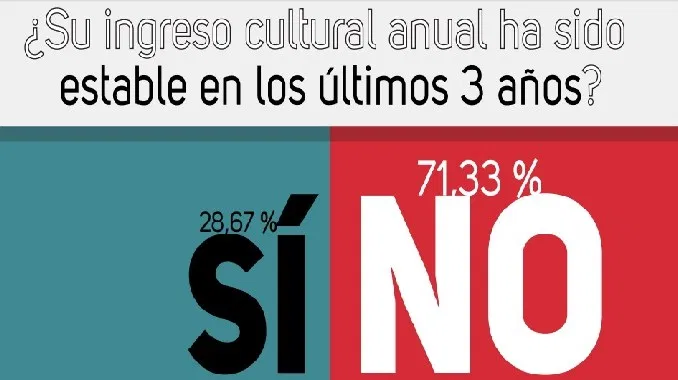
50% of artists do not have a health insurance system (neither public nor private)
The Observatory of Policies and Economics of Culture launched the first study on the cultural situation in the country. According to the “Cultural Thermometer”, the unfavorable circumstances of confinement revealed the fragility and vulnerability of the cultural workers.
Before the pandemic, 7 out of 10 culture workers were already in a worse situation than they were three years ago. This is because the average monthly income of 1 in 3 workers is less than the unified basic salary (currently USD $ 400).
Half of the surveyed workers do not have a health insurance system (neither public nor private) and that the majority do not have savings due to their income limitations and only half of the workers have monthly income.
These are some of the results of the survey that the Observatory applied to 2,508 workers in the arts and culture.
71.33% have not had a stable annual income in the last 3 years.
28% of the culture workers who reported income stability during the last 3 years had a monthly income between USD 400 and USD 750.
76% of the culture workers who reported income instability during the last 3 years, presented during the worst year an income between USD 250 and USD 399, while 31% of the respondents reported that same income level for the best year.
The current crisis has accentuated several of the problems that previously affected employment in the cultural sector. The first is an almost general change in the way of working and the second is a reduction in income.
In addition, there is a marked pessimism regarding the possibilities of recovery in the immediate future.
Respondents estimate their average income losses at USD 1,350 during the first month and a half of confinement and 72% think that the losses are definitive.

Be the first to comment